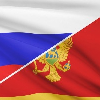Today the Parliament of Montenegro voted for NATO
This is an automatic translation.
Click here to read the publication in the original language.
Deputies of the Parliament of Montenegro ratified the protocol on joining NATO, despite the boycott of the pro-Russian opposition. A full member of the alliance the country can become even before the summit of NATO leaders on May 25.
The Parliament of Montenegro voted for the country's accession to NATO. At the exit meeting in the city of Cetinje, the deputies of the assembly ratified the protocol on accession to the alliance by 46 votes. In total, the parliament consists of 81 deputies, but representatives of the opposition boycotted the meeting.
On the eve of voting, security measures were strengthened in the country. As reported by Interfax, along the highway between the present capital of Podgorica and the historic capital of Cetinje, where the parliamentarians went, police outfits and water cannons were built. As the first capital after independence in 1878, Cetinje is a symbol of the sovereignty of Montenegro.
"You have a historical privilege to make a decision that will be remembered for the entire time, while there are Montenegro and Montenegrins", - addressed to the deputies the new Prime Minister Dusko Markovic. According to him, joining NATO will be the impetus for the prosperity of the country, will strengthen stability and economic development.
The process of Montenegro's entry into NATO started in March 2014, when Prime Minister Milo Djukanovic announced his intention to join the alliance amid the Ukrainian crisis. "It seems to us that due to many global challenges, for example because of the events in Ukraine, there is a lack of attention to the aspirations of Montenegro in NATO capitals," Djukanovic said in April 2014. "We all relaxed and thought that it was done, but then Ukraine happened, which all of us rastormoshila."
A formal invitation from Brussels came only in December 2015, negotiations started in February 2016. The protocol of accession was signed in May 2016.
A full accession to the bloc will be possible after the ratification of the protocol by all NATO member countries. Now this was not done only by Spain. Earlier in March, NATO Secretary General Jens Stoltenberg argued that the accession of Montenegro is only a matter of time, while US Secretary of State Rex Tillerson called for Montenegro's membership in the summit of NATO leaders scheduled for May 25.
Russia opposed the accession of Montenegro to the alliance, calling it "artificial retraction". Last week, Russia's Foreign Ministry spokeswoman Maria Zakharova noted that "an unfavorable situation for Russians" is developing in Montenegro - an increase in hostility towards Russia and its citizens on the eve of the country's accession to NATO. This week, Rospotrebnadzor banned the import of Montenegrin wines from Plantaze, motivating it with pesticides found in the beverage.
According to TASS, Montenegrins refer to the country's entry into NATO with "silent hostility". The correspondent of the agency on the voting day in the Assembly asked local residents who complained about the potential deterioration of relations with Russia and the resulting outflow of tourists.
At the same time, most of the polls show that supporters and opponents of the country's joining NATO among the Montenegrins are approximately equal. The latest poll, conducted in December 2016 by CEDEM, showed that 39.7% of citizens favor joining the alliance, against 39.9%. More than 20% of those questioned answered definitely.
The opposition represented by the Democratic Front (DF) was in favor of holding a nationwide referendum before the ratification of the protocol. "The illegitimate decision to join NATO divided the country in two. The smaller part sits in the parliament, and the big one is protesting here today, "MP from the DF Milan Knezevic said on Friday at a rally (quoted by TASS).
However, the leadership of the ruling Democratic Party of Socialists (DPS) earlier claimed that the referendum on NATO would actually be the parliamentary elections held in October 2016.
In the elections, the DPS received 41.4% of the vote and 36 seats in the assembly, while the pro-Russian Democratic Front - 20.8% of the vote and 18 seats. Shortly thereafter, an attempt was made in the country to overtake, allegedly organized by Russian special services.
Simultaneously with the Montenegrin vote in another republic of the former Yugoslavia - Macedonia - mass riots turned into storming the parliamentary building. After the defeat of the Social-Democratic opposition in the December elections, they nevertheless tried to hold for the post of parliament speaker their protege - ethnic Albanian Talat Jaferi.
In response, supporters of the Conservative Democratic Party for the Macedonian unity, which won elections, broke through into the courtroom and beat several Socialist deputies. The Russian Foreign Ministry called for a solution to the conflict through an intra-national dialogue.
More information on RBC: http://www.rbc.ru/politics/28/04/2017/590325339a7947a78d2e1d71?from=main
This is an automatic translation.
Click here to read the publication in the original language.






































